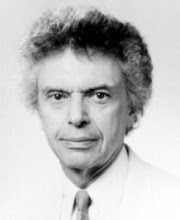Fictional Memories
In his article "Speak Memory," (New York Review, 2-21-13) Oliver Sacks discovers the unreliability of memory only a century after the Viennese psychiatrist Alfred Adler came to the same conclusion. However, their assumptions differ about the plasticity and purpose of fictious memory. Adler belived that memories, especiallly earliest childhood memories were reflections of an unconscious, fictional final goal that pulled all psychological functions--thinking, feeling, action, memory, imagination, dreams, even the function of some organs--in the same direction, for the same purpose. An interesting diagnostic benchmark in therapy is that "earliest childhood memories" often change spontaneously during effective Classical Adlerian Depth Psychotherapy. It is also possible for a therapist and client to gradually co-invent new, substitute memories that have profound healing power. The bad news is that some memories may be fictional; the good news is that we can use imagination to heal real or imagined toxic recollections. In some cases, "missing developmental experiences" can be provided in therapy using vivid, guided imagery.

